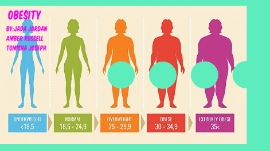1984 Seminar Powerpoint
Transcript: What is Hope? "And even when they become discontent, as they sometimes did, their discontent led nowhere, because, being without general ideas, they could only focus it on petty specific grievances. The larger evils invariably escaped their notice" (Orwell, 75) " It was probably that there were some millions of proles for whom the lottery was the principal if not the only reason for remaining alive" (Orwell, 89). Green- Desire given to them by party leading to their contentment By: Christian Schiavone "Orwell idealizes he proles but denies them any capacity for reflection or agency, for connecting the dots" (Dickstein) "In all questions of morals they were allowed to follow their ancestral code. The sexual puritanism of the Party was not imposed upon them. Promiscuity went unpunished, divorce was permitted. For that matter, even religious worship would have been permitted if the proles had shown any sign of needing or wanting it" (Orwell, 75 What is False Hope? "When you put it in words it sounded reasonable: it was when you looked at the human beings passing you on the pavement that it became an act of faith" (Orwell 89) The Proles Oblivion " But the proles, if only they could somehow become conscious of their own strength, would have no need to conspire" (Orwell, 72-73) Thesis Blue- The Proles oblivion to the Party MEDIA COMPONENT/ INTERACTIVE ACTIVITY "He realizes that he no longer despises the proles but in fact admires their resiliency even in the face of a dehumanizing regime, a regime which has hardened him on the inside, he shows his growing appreciation for the importance of human interaction that is not mediated through the interests of the party" (Steward). "Not only is the cinematographic medium controlled by the members of the Party, and employed to influence their own thinking, but it is also meant to provide the proles with the kind of obscene entertainment suitable to maintain a peaceful social order. The Records Department of the Ministry of Truth, in fact, includes a section specidically devoted to the production of pornographic films"(Varricchio 98). "They were not loyal to a party or a country or an idea, they were loyal to one another" (Orwell, 172) In George Orwell's novel Nineteen Eighty-Four, the proles' oblivion, loyalty, and contentment serve as a sign of false hope for Winston Smith. Hope is an expectation that one desires will happen. Hope allows all humans to pick themselves up, and carry on with their lives. "Until they become conscious they will never rebel, and until after they have rebelled they cannot become conscious" (Orwell 74) Secondary Source CONCLUSION WHO DO YOU THINK THE PROLES ARE LOYAL TOO? EXPLAIN WHY YOU THINK SO(IF YOU CAN) ARE THE PROLES CONTENT? IF SO WHAT DO YOU THINK THEY ARE CONTENT ABOUT? CLEAR- WINSTON'S HOPE/ PROLES TEMPORARY VISION Secondary Source "They were governed by private loyalties which they did not question. What mattered were individual relationships, and a completely helpless gesture, an embrace, a tear, a word spoken to a dying man, could have value in itself" (Orwell, 172) HOPE IS......... Loyalty The Proles: A Sign of False Hope RED- PROLES LOYALTY FOR EACH OTHER The Proles Contentment "A young woman leapt out of a doorway a little ahead of Winston, grabbed up a tiny child playing in a puddle, whipped her apron round it and leapt back again, all in one movement. At the same instant a man in a concertina-like black suit, who emerged from a side-alley, ran towards Winston, pointing excitedly to the sky. 'Steamer' he yelled. 'look out gub'nor! Bang over'ead! Lay down quick!'"(Orwell, 87) Secondary Source Winston's thoughts are considered to be an illusion stuck in his mind that keep in sane. The prole's lack of awareness of the Party's oppression, loyalty towards other proles and contentment with their lifestyle is what makes Winston Smith's hope within them false, therefore making it this illusion False hope is in relation with unrealistic hope. It is built entirely around an illusion that has a strong chance of not occurring, but the person may or may not know it.

















